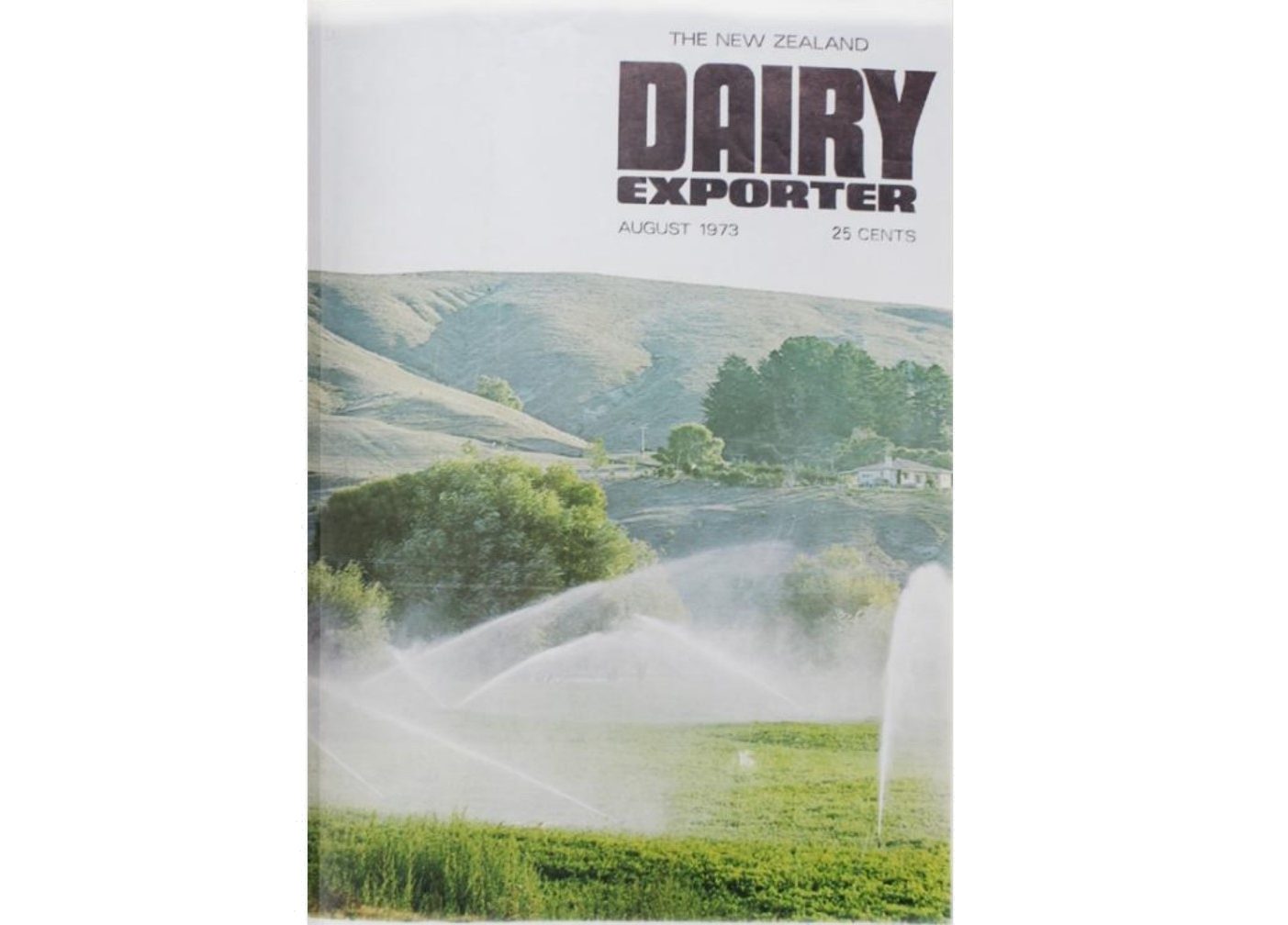50 Years Ago in Dairy Exporter: August 1973
As NZ Dairy Exporter counts down to its centenary in 2025, we look back at the issues of earlier decades.

THE PLACE OF IRRIGATION IN SUMMER FEEDING
Financial returns from irrigation are unlikely to be worthwhile, even where adequate water and labour are available, unless the farm can increase stock numbers significantly, is subject to regular summer drought and a high town milk quota.
This is one important conclusion reached by a Dairy Board consulting officer, Mr John Murray, of Palmerston North, in a paper on summer feeding and the place of irrigation.
Mr Murray advises that in dry summers dairy farmers should milk their herds with enthusiasm and realise that seasonal production will vary with the type of summer experienced.
He says there has been no practical research work carried out in New Zealand which could give a lead to the possible financial results from irrigation under dairying conditions.
THE DAILY MILK LINE
The line of farmers delivering their milk to the factory door is a regular feature of dairying near the mouth of the Clutha River.
Three cheese companies – Kaitangata, Stirling and Paretai – service the area, which includes one of the most intensive dairying districts in the South Island.
Every day during the season the farmers roll along in their trucks and tractors to discharge their milk from stainless steel tanks into the reception area of the factory.
It can be quite time-consuming, especially during “rush hour” congestion.
Periodic suggestions of amalgamation and tanker collection have provoked local feeling and controversy.
£1M PROMOTION
A £1 million advertising and promotion campaign to support the marketing of Anchor brand butter and cheese in the United Kingdom has been mounted by the New Zealand Dairy Board.
“This campaign indicates the Board’s determination to maintain the brand leadership of Anchor butter and the popularity of New Zealand mild and mature Cheddar cheese,” said the United Kingdom marketing executive of the Board, Mr Charles Nash.
The butter television commercials will continue until November. Television promotion for cheese began last month, an extension of a major advertising campaign for New Zealand cheese. The butter advertising is built around the theme of “Britain’s favourite butter.”
The campaign includes 30-sec and 45-sec spots on television on a national basis, 48-sheet and 16-sheet posters, and four sheets in shopping precincts, national women’s magazines, and a store demonstration programme using a team of New Zealand girls.
CONCERN TO ATTRACT YOUNG PEOPLE INTO DAIRYING
A continuing concern to attract young people into the industry and enable them to buy their own farms eventually was apparent in several discussions during the Dominion Dairy Conference.
One remit from Taranaki, which was adopted, required the Government to be made aware of the “urgent necessity for a scheme to make it possible for young people to acquire farms”.
Mr R. Shepherd (Taranaki) said that many similar remits had been passed, supported by excellent speeches, over the years without obtaining any action from the Government. There was still a real need for something to be done in this direction. Mr A. G. Spratt (Eastern) said people went sharemilking with one aim, to obtain their own properties eventually. Yet under present circumstances this was almost impossible “unless they marry the boss’s daughter”.
Mr Spratt added that he had been shocked to find that the Budget had given support for young people to own their own homes, but not to own their own farms.
Thanks to the Hocken Library, Dunedin





